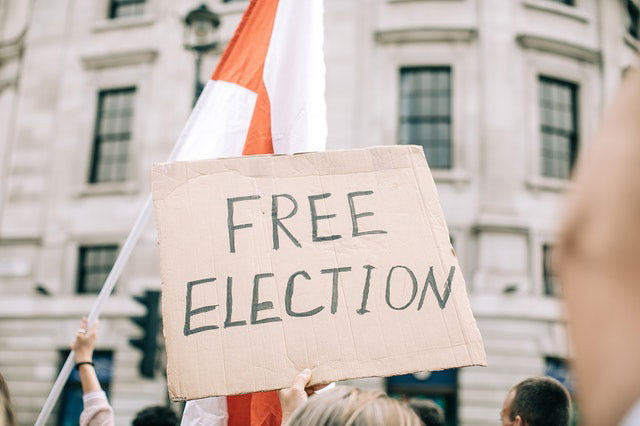The 4 Main Factors that Influence Voter Decisions
The 2020 presidential election has political analysts and voters alike wanting to understand the factors that influence voter participation in elections. While some people vote straight party line every time, others consider a wide range of factors before casting their vote for president, senators and representatives at the federal level, and state and local offices. Below we explore the 4 main factors that influence voter decisions in all types of campaigns.
Birds of a Feather
Each person’s background, which includes gender, race, age, ethnicity, religious preference, socioeconomic status, and several other identifying characteristics, influences nearly every decision they make in life. Voting is no exception. People tend to identify with and vote for political candidates most like themselves. Here are just three examples from past presidential elections:
- In 1960, Democrat John F. Kennedy was the first Catholic on a presidential ticket in United States history. Catholic voters overwhelmingly voted him in with 78 percent choosing Kennedy over Republican Richard Nixon.
- In 2008, Democrat Barack Obama made history as the first African American presidential candidate in the history of the country. Obama defeated John McCain in 2008 and Mitt Romney in 2012, both of whom had served as Republican senators. What made the 2008 presidential election even more memorable is the fact that 95 percent of African Americans who participated in the process voted for Obama. Four years later when Obama ran for re-election, 93 percent of African Americans who voted chose him over Romney.
- Hillary Clinton received more female votes than male votes during the primary race to win the Democratic nomination in 2016. Approximately 61 percent of eligible female voters chose Clinton in the presidential election against Donald Trump later that year. Although Clinton lost her bid to be the first female president of the United States, the fact that women voted for Clinton because they saw her as most like themselves should not be overlooked.
Strategic political candidates understand that people vote for those who share some of their identity characteristics as well as their deeply held beliefs. However, sometimes voters feel skeptical of a candidate who tries to prove he or she is just like them when that may not be the case at all. People tend to value authenticity in political candidates more than anything else and can often tell when a candidate is only trying to get their vote rather than improve their lives.

How Do Political Parties Influence Voters?
Whether Democrat, Republican, Independent, or a small fringe party, most people strongly identify with the beliefs and practices of one political party over the others. This is due to the human tendency to form a close psychological attachment to the party that people feel best represents them. While people sometimes change political parties as they evolve and new information becomes available, up to 90 percent vote for the candidate representing their preferred political affiliation.
The party that people had the most exposure to growing up is often the party they choose to vote for when they come of age. For example, a person raised in a conservative Christian home is likely to vote Republican and someone raised by liberal parents is likely to vote Democrat after they turn 18 and become eligible to vote.
Of course, this is not always the case. Young adults may reject the values of their parents for a time to help them discover their own identity. Someone raised in a family that strongly favored one major party over the other may become an Independent or explore the opposite party to see which one suits them best.

Negativity Bias
Negativity bias is a term coined by psychologists to describe the human tendency to remember negative information easier than positive information. This phenomenon can work to a political candidate’s advantage. As anyone who has ever lived through an election season knows, it is common for political candidates to attack one another leading up to election day. People running for political office do this with the hope that the public will feel so disgusted or outraged with the information presented that they vote for them as a means of voting against the other candidate.
People are much more likely to participate in an election when they feel intense dislike for one of the candidates. Repeatedly viewing negative television commercials about a candidate or party can prompt people to vote for the competition more than positive ads about the candidate of their choice. The human brain even takes negativity bias one step further by voting against candidates whom they associate with difficult events. The coronavirus pandemic is a recent example of this.
Due to negativity bias, some people will vote against President Donald Trump simply because the pandemic happened during his administration. Because of the negative association between Trump’s presidency and the massive disruption caused by the coronavirus, some voters will not investigate his role any further to determine if he should have handled it better. Their brain tells them it happened on Trump’s watch and that is all the motivation they need to vote for Joe Biden.

Where a Candidate Stands on Important Issues
People have strong emotions about issues such as abortion, voter identification, illegal immigration, and crime among dozens of others. For some voters, a candidate’s stance on a single issue is enough to make them vote for or against that person. Abortion is a prime example. People who consider themselves conservative or pro-life feel like they must vote their convictions on the abortion issue even if they don’t agree with the candidate on other issues.
Other voters care more about issues like gay rights and will vote for a candidate who supports legal protection for same-sex couples. The point is that certain issues are so central to a person’s belief system that it would be illogical for them to vote for a candidate that takes an opposing view on them.
Issue voting, as it is known in political circles, has become much more widespread during the last few elections. Political analysts attribute this to the growing divide between Republicans and Democrats that has launched full-scale identity politics. Unfortunately, extreme right-wing or left-wing ideologies alienate voters who identify more with the label of moderate. The media, which sometimes has its own agenda to push, has contributed to the current political polarization. Members of the media may also provide conflicting information that further confuses voters and can make them distrustful of the other party or politicians altogether.
Voting guides and live debates allow candidates to clarify where they stand on certain issues. These tools also allow voters to gather information directly from the candidates without having to contend with potential media bias.

The Reasons for Voting a Certain Way Can Be Complicated
These are just 4 main factors that influence voter decisions, but there are many other complex reasons why people vote for any particular candidate. Keep in mind that people are multi-dimensional and not all of these will apply to every voter. However, it’s always a good idea for people to understand their own unconscious motivations for choosing one candidate over the other. Exploring these motivations and biases is the best way for people to ensure that their vote matches their foundational beliefs and does not violate their conscience in any way.





